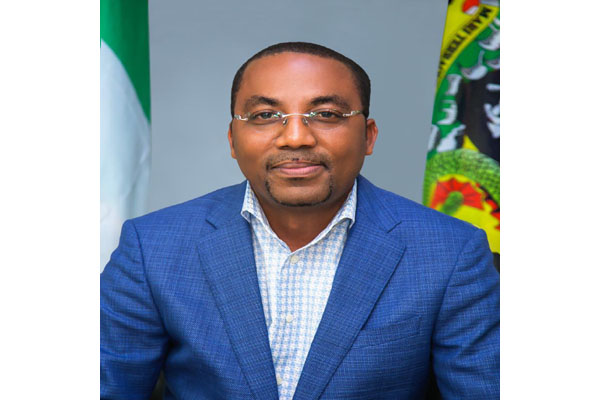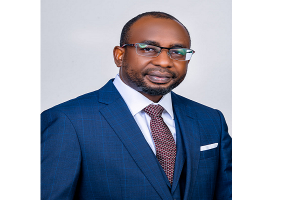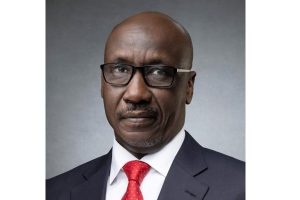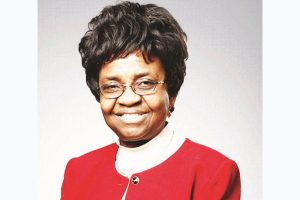…How He Earned His Place in Tinubu’s Renewed Hope Train
Mohammed Bello-Koko was one of the two incumbent Chief Executive Officers of the four agencies under the new Ministry of Marine and Blue Economy who were reappointed by President Bola Ahmed Tinubu in 2023.
Bello-Koko had spent just over a year in that position at the time of his reappointment, having been confirmed as substantive Managing Director/Chief Executive Officer (CEO) of the Nigerian Ports Authority (NPA) by former President Muhammadu Buhari in February 2022. Until that confirmation, he was the Executive Director, Finance and Administation, and Acting MD/CEO of the Authority.

His reappointment was not merely based on the need to allow him to continue and complete his term. President Tinubu had replaced many CEOs of Federal Government agencies in similar positions and circumstances. Bello-Koko’s reappointment was, rather, in line with the new President’s well-known favourable disposition towards professionalism and merit in making appointments.
Within the short time Bello-Koko acted as NPA MD/CEO, he had proved himself to be the perfect fit for the office, making the task of his reappointment easier for the President. He has embarked on audacious projects and recorded great accomplishments since assuming the driver’s seat at the Authority.
Bello-Koko came to NPA as Executive Director in charge of Finance and Administration from the private sector, where he had been a consummate banker. He was appointed as NPA Acting MD/CEO in 2021 and confirmed as the substantive helmsman in 2022.
Since then he has hit the ground running. He galvanized his staff members to key into his vision of enlarging the coast and expanding the frontiers of the Authority in terms of executing projects that would lead to increased revenues and remittances to the Consolidated Revenue Fund of the Federation. His vision for new port development gained instant and wide support as soon as he unveiled it.
He provided necessary technical guidance for the Outline Business Case, (OBC), Full Business Case (FBC) and eventual approval for the concession of the following new ports: Badagry Deep Seaport, Ondo Deep Seaport, Snake Island Port, and Burutu Port. The immediate objective of these ports, when operational, is to decongest the traffic to Apapa Port. They would open up the various locations where they are sited and create new vibrant commercial and socio-economic hubs in aid of societal growth and development.
Bello-Koko matched the idea of new ports with action by fast-tracking the construction of deep seaports and port capacity enhancement and promoting national preparedness for the African Continental Free Trade Area (AfCFTA). He bolstered this by enlisting Nigeria in the league of countries with deep seaports by providing uncommon support and fast tracking the approval processes that culminated in the speedy designation of Lekki Deep Seaport as a Customs Wharf and subsequent commencement of operations in record time; inauguration of actual work towards the 25-year Port Masterplan; and International Organization for Standardization (ISO) Certification of Onne and Calabar Ports with all other ports at advanced stages of certification. He also secured approval for the commencement of construction of Badagry Deep Seaport and provision of technical guidance for the construction of more Deep Seaports; and the full automation of Lekki Deep Seaport, which positions Nigeria to optimize opportunities inherent in AfCFTA and win back transit cargo hitherto lost to Nigeria’s maritime neighbours.
Under Bello-Koko’s leadership, Nigerian ports have indeed witnessed improved navigational aids. For instance, the Authority provided and installed navigational aid and buoys in Warri and Calabar Pilotage Districts for proper channel marking and route mapping. It acquired Marine Crafts (Pilot Cutters and Patrol Boats) to eliminate delays associated with the berthing and sailing of vessels and to improve efficiency at the ports. Other developments at the ports included dry-docking of various marine crafts to increase the fleet of marine crafts available for vessel support operations; enhancement of port security through procurement and deployment of security patrol boats, (SPBs) to all pilotage districts to address incessant attacks of vessels along the channels and at ports’ waterfronts; and establishment of a robust partnership with the EU-funded West and Central Africa Ports Security, (WeCAPS) towards risk prevention, vulnerability assessment of port infrastructure, and skills acquisition for port personnel to strengthen the security and safety of Nigerian ports.
The Authority, led by Bello-Koko, has also ensured the standardization of operational procedures for different activities such as barging, private jetties, pilotage, vessel berthing/sailing, etc.; a significant reduction in the traffic gridlock along the main port corridor and on the internal access roads through enforcement; proper batching; continuous access control mechanisms; and the movement of cargo via barge operations. In addition to the above, the Authority under Bello-Koko’s leadership has also provided traffic surveillance motor cycles deployed in the ports for effective monitoring of truck e-call-up operations at Apapa, TCIPC, and Ijora axis to ease the free flow of traffic, as well as establishing a standing partnership with the Police High Command, resulting in the reduction of illegal checkpoints along the port corridor to stem abuse and extortion as well as make traffic management more effective.

In acknowledgment of his repositioning of NPA for improved trade facilitation, revenue generation and unprecedented remittances to the Consolidated Revenue Fund (CRF), the Federal Government conferred on Bello-Koko the National Productivity Order of Merit (NPOM) Award in 2023. The NPOM Award was instituted by the Federal Government to recognise and honour productive individuals and organisations in Nigeria in the year of the award for achievements made in the preceding years. An evaluation of his reforms by NPOM organizers, Bureau of Public Service Reforms (BPSR), classified NPA as a level 5 “Platinum Level” Organisation. The BPSR Self-Assessment Tool (SAT) deployed in NPA for the independent assessment, validated assessment and in-depth analysis of processes and practices of the agency returned the verdict of “exceptional performance with performance level of 91.25 percent.”
Bello-Koko who was born on March 25, 1969, attended Usmanu Danfodio University, Sokoto for his bachelor of science (B.Sc.) degree in Management Studies and Master’s degree in Business Administration (MBA) in 1992 and 1995, respectively. He proceeded to Harvard Kennedy School, USA, where he bagged an Executive Certificate in Public Leadership.
Bello-Koko started his career with FSB International Bank Plc from the year 1996 to 2004 where he functioned across several strategic portfolios including Banking operations, Credit-Risk Management, Treasury Operations, Retail banking and Corporate Marketing that found him in charge of Energy sector and Public Sector. He was, thus, responsible for managing the accounts of several multinational oil and Gas companies and Public sector relationships.
He moved to Zenith International Bank Plc in 2005 where he grew at various times to be Branch Head, Zonal Head Public Sector and also Large Corporates from where his exceptional contribution to the bank’s globally referenced profitability and balance sheet in the period 2005 to 2015 earned him numerous awards in the bank and a spot in the bank’s Executive Management Team as Deputy General Manager and Zonal Head.
In 2016, Mohammed Bello-Koko was appointed by President Muhammadu Buhari as Executive Director, Finance and Administration, of NPA, a role he held with distinction till May 2021, when he was appointed Acting Managing Director.
Bello Koko who is a fellow of both the Association of National Accountants of Nigeria (ANAN) and the Institute of Strategic Management (ISMN), is also a member of the Nigerian Institute of Management (NIM) and has attended several domestic and international trainings.






